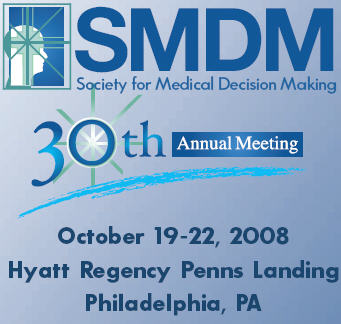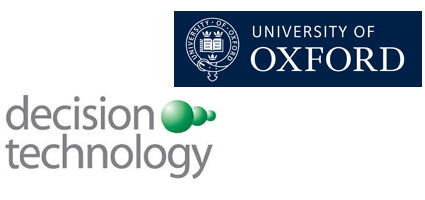SYMPOSIUM ON STATISTICAL CHALLENGES IN ELECTRONIC COMMERCE RESEARCH

2008 Symposium on Statistical Challenges in eCommerce Research
Call for Papers
We invite submissions to the Fourth Symposium on Statistical Challenges in eCommerce Research (SCECR 08) to be hosted in New York City by NYU Stern’s Center for Digital Economy Research, on May 18th and 19th, 2008.
Symposium Theme: Social Networking and User-Generated Content
Our focus this year is on the statistical challenges and opportunities involving Web 2.0 applications and data. Today’s Web is increasingly interactive and networked, providing a platform for consumers to disseminate information about products, vendors, buyers and sellers, as well as about themselves and their social connections, through the use of social networking sites, blogs, wikis and interactive opinion forums. Our workshop’s theme is based on this development, since it causes the data that are available to ecommerce researchers to be increasingly user-generated, and increasingly networked.
We envision the research presented in the symposium will discuss both the opportunities and challenges relating to the statistical analysis of these new forms of ecommerce data and its use as the basis for empirical research about and facilitated by electronic commerce. As just a few examples of these opportunities and challenges:
* Characteristics of user-generated reviews and reviewers can affect ecommerce demand; feedback in reputation systems can affect sellers’ pricing policies and the nature of competition; the attributes of user-generated search queries can affect the performance of search engine advertising, and the content of customer support dialogs can affect product design. There are immense possibilities for the creative use of these data in research. There are also significant opportunities to address statistical challenges that this use raises: on the econometric identification of how the presence of this content affects outcomes that are determined simultaneously with its generation, towards developing new statistical approaches underlying the automated analysis and mining of textual content, on effectively sampling the vast repositories of such user-generated text on the web, and towards understanding the process by which this content is generated by self-interested users.
* Networked data sets have powerful explanatory and predictive power in ecommerce research.
Social-network-based word-of-mouth marketing can affect user adoption, recommendation networks can affect the structure of ecommerce demand, and usage behaviors can be influenced by local networks of friends, employees or peers. Realizing the promise of such data in ecommerce research requires advances in techniques for sampling these data, creating new identification techniques for the use of such data in econometric analysis, developing collective inference methods for more robust predictive modeling and learning, interpreting the structural properties of networks in a statistically meaningful way, and modeling the evolution of networked data sets as a stochastic process. Beyond the symposium’s theme, we also welcome and encourage submissions that raise statistical challenges in other areas of ecommerce research. Frequent topics that past workshop presentations have studied include: interpreting data from online auctions; consumer profiling using web clickstreams; search advertising; methods and models for large dynamic ecommerce data sets; representative sampling from the Internet; analyzing pricing and piracy data for digital goods, and modeling/ mining spatial ecommerce data. More generally, SCECR aims to identify problems and research questions related to empirical research in electronic commerce by bringing together researchers from computer science, economics, information systems, marketing, statistics, and other related fields. We believe this confluence will help understand better how different research perspectives are connected to one another and how, together, they can achieve the modernization and enhancement of empirical research methods.
Submission Guidelines
Authors should submit abstracts of their work for consideration for the symposium (the abstracts should be about 2 pages in length). These abstracts should clearly highlight the statistical challenges that the presentation of the research will raise and/or address. If available, a link to a more detailed description of the research (for instance, a working paper) can be included.
These abstracts should be e-mailed to scecr2008@stern.nyu.edu by February 15, 2008. PDF is the preferred format. This is a work-in-progress symposium, so abstracts will be evaluated based on their alignment with the symposium’s objective of furthering our understanding of statistical challenges in ecommerce research, the anticipated contribution of the research they summarize, and their potential for stimulating discussion at the symposium. Decisions on acceptance will be made by March 5, 2008.
SCECR 2008 Co-Chairs
* Anindya Ghose, aghose at stern.nyu.edu
* Foster Provost, fprovost at stern.nyu.edu
* Arun Sundararajan, asundara at stern.nyu.edu
For additional information about SCECR 08, visit the symposium website at:
http://w4.stern.nyu.edu/ceder/events.cfm?doc_id=7909
Photo credit: http://www.flickr.com/photo_zoom.gne?id=2080084585&size=m
This entry was posted on Tuesday, January 22nd, 2008.
 Subscribe to Decision Science News by Email (one email per week, easy unsubscribe)
Subscribe to Decision Science News by Email (one email per week, easy unsubscribe)









